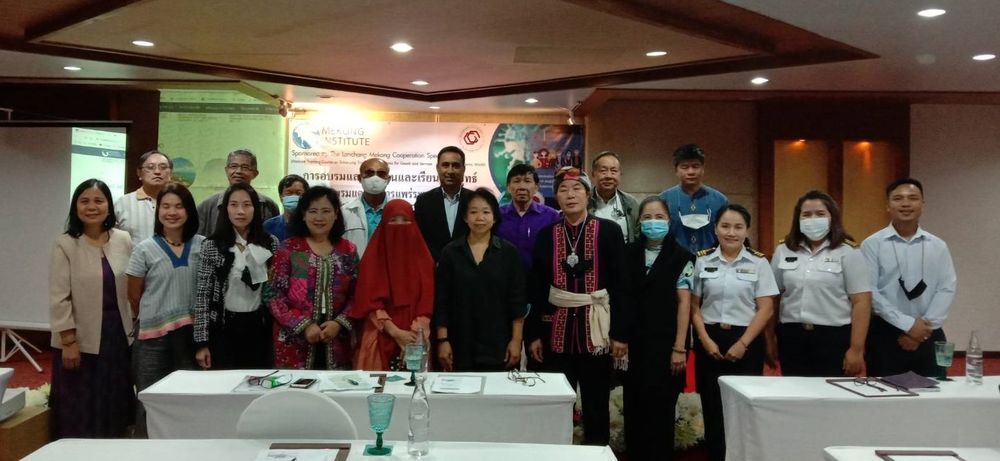Mekong Institute (MI) and Pracharath Raksamakkee Prachinburi Company, Limited—a social enterprise business—organized a national training on “Strategies for Cross-Border Trade in the Post-Pandemic of COVID-19” to help restore business confidence and boost cross-border trade at the Khumphucome Hotel in Chiang Mai, Thailand on November 6, 2020.
In his opening remarks, Mr. Madhurjya Kumar Dutta, Director of MI’s Trade and Investment Facilitation Department said “this training offers a good opportunity for participants to discuss and find solutions that will help revive businesses, shape new strategies for cross-border trade, and create more jobs for the local people.”
Discussions during the training focused on ways forward in fostering business continuity and boosting international trade. Specifically, guest speakers from the provincial departments of public health, agriculture, and commerce, as well as Chiang Mai International Airport presented a case study on measures to protect frontline officials from COVID-19 and the sufficiency economy concept. The speakers from Mata Trading Company, Limited and Pracharath Raksamakkee Prachinburi Company, Limited also underscored best practices that will enhance trade competitiveness of goods and services in a post-pandemic setting.
Supported by the Lancang-Mekong Cooperation Special Fund, the training was attended by 20 business traders, government officials, and small- and medium-sized enterprise representatives. The activity was part of the action plan implementation of MI alumni from Thailand, who completed MI’s e-training course on “Enhancing Trade Competitiveness for Goods and Services: Issues and Strategies in a Post-Pandemic World” last August 3 to 20, 2020.








